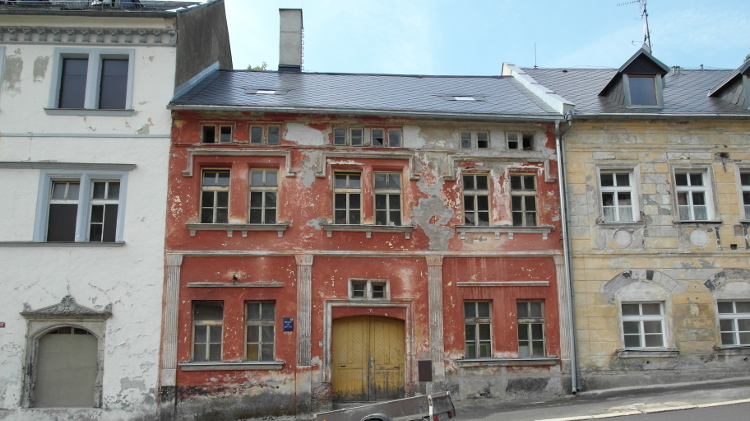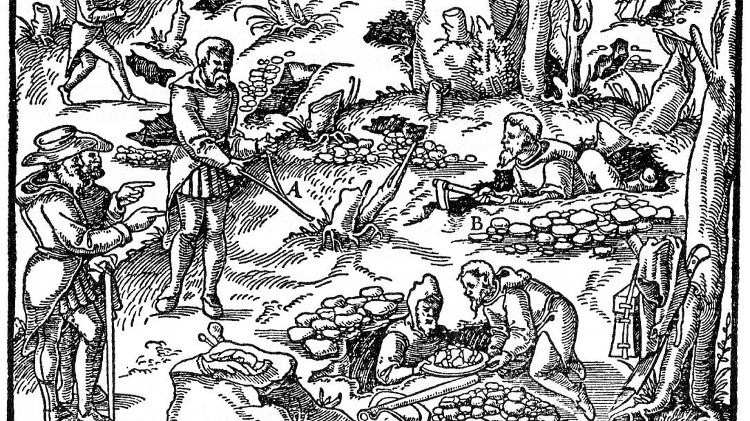Viola MacMillan was a successful prospector and mining financier, and the first female and longest serving president of PDAC. Courtesy of PDAC
Viola MacMillan overcame a multitude of obstacles in pursuit of a mining career that started in the 1930s and spanned more than six decades. In addition to finding success as a prospector and becoming a well-respected mining financier, Viola pushed gender boundaries by becoming the first female – and longest serving – president of the Prospectors and Developers Association of Canada, paving the way for women in mining.
Born in 1903 and raised on a farm in Dee Bank, Ontario, Viola was instilled with a tenacious work ethic at a young age. Her mother, Harriet Spiers, was a strong-willed and energetic woman who found time to run the family farm, work as the town midwife, fill in for her husband as a postworker and take on multiple cleaning contracts for nearby resorts, all while raising 15 children.
Harriet’s fourth child, Joe Huggard, worked in the Cobalt mines in northern Ontario. His mining stories inspired Viola to visit the Coniagas mine in 1922, when she was 19. Intent on entering, she disguised herself to hide her gender; women were considered bad luck and not allowed underground.
In her autobiography, she describes the trek as “one of the most glorious experiences of [her] lifetime,” which left her “completely hooked on the glamour of mining.” When she returned home, she read everything she could on the industry, which prepared her for a prospecting opportunity in 1926. Newly married to George MacMillan, Viola and her husband received a request from a family member for help assessing a number of claims in Grenville Township. George and Viola took up the challenge. It was her first trip into the bush.
During a subsequent prospecting trip, the couple ran into a prospector who had been recently swindled by investors in Buffalo, New York. Having gained legal knowledge working as a stenographer in a law office in 1922, Viola sought out a lawyer and won the case in the Mining Court of Ontario on behalf of her comrade. This experience instilled a deep appreciation for the importance of protecting prospectors’ rights.
By 1933, Viola was well-respected in the industry and had considerable knowledge of mining legislation. She opened MacMillan Securities Ltd. to negotiate deals between prospectors and investors, sell shares for mining development companies and set up syndicates. Through MacMillan Securities and later ViolaMac Mines Ltd., Viola purchased majority shares in many mining enterprises, including the Quartet syndicate (which had shares of the Hallnor gold mine in Timmins) and Golden Arrow Mines. Viola’s most profitable purchase was the Victor mine located southwest of Carpenter Creek in British Columbia, for which she paid $50,000 in 1948; the mine produced over $9 million worth of silver, lead, zinc, cadmium and gold before closing in 1962.
Viola and George joined the Ontario Prospectors and Developers Association soon after its formation in 1932 (the organization dropped ‘Ontario’ from its name in 1957 and was renamed the Prospectors and Developers Association of Canada in 1987), and in 1941 Viola became the secretary-treasurer while her husband was president. Viola did such an outstanding job attracting new members that when she was elected president in 1944 there were “no dissenting voices.” She remained in the top spot for 20 years.
During the Second World War, the government failed to inform the mining industry which metals were needed for the war effort. In response, Viola approached the War Metals Advisory Committee and with their help, organized educational sessions to identify sought-after metals.
Viola’s tireless lobbying of the government also contributed to the creation of the Emergency Gold Mining Assistance Act in 1948, which saved Canada’s gold mining sector from near collapse, caused by high production costs. Her persistence resulted in a government-supplied bonus system that helped compensate developers for high operating costs.
In 1967, Viola was accused of wash trading for selling shares of MacMillan Prospecting & Development Co. Ltd. to George, and of fraud after a highly publicized claim turned out to be fruitless. The fraud charge was dropped, but Viola spent seven weeks of a nine-month sentence in prison for wash trading. She was the first person to ever be convicted of the offence in Canada, but the government issued her a full pardon in 1978.
The same year of Viola’s pardon, George passed away, prompting her to close up her investments and companies. She donated $1.25 million to the National Museum of Natural Sciences to purchase a mineral collection, which was named after her. Viola was inducted into the Canadian Mining Hall of Fame in 1991, two years before her death, making history as the first ever female inductee.




